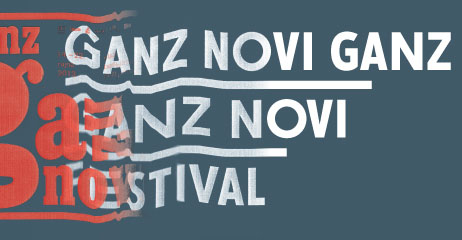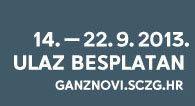INTERVIEW – Boris Nikitin
Born in Basel, studied at the Institut für Angewandte Theaterwissenschaft in Giessen, Germany. He creates performance projects and works as a curator for festivals and theatres. Imitation of Life is his third piece in collaboration with Malte Scholz. Both Woyzeck, which won the Jury Prize at the Festival 100° Berlin, and F wie Fälschung (nach Orson Welles) were invited to the Festival Impulse in 2009. In 2011, Nikitin created Universal Export, a piece about brain research, and Das Grundgesetz about constitutional law. He’s also regularly collaborating with Schauspielhaus Graz and Theater Freiburg.
G: Where are you starting from and how?
B: Most of my projects deal with the questions: what is reality? What are our codes, agreements and rules our idea of reality is based on? How do I perceive reality? In my projects it’s very much about the construction of reality and identity. It’s probably connected to my hybrid background, being a gay Russian-Slovakian-French-Swiss-Jewish-Christian artist. If you haven’t clarity in your mind or soul the clarity the world around you pretends to have becomes phony. That’s probably the base of every emancipatory movement: that you realise that the world around you is fake. That allows you to act and to make own decisions.
What I do like very much is to play with the framing of theater, the situation the spectator finds him – or herself in. Sometimes, when I go to theatre myself I imagine that all other spectators are actually extras and that I am the only real spectator. It’s playing with my own suspicion. So in these moments when everything suddenly appears as a potential fake I get an idea what reality actually is. I’d say that many of my performances play with this idea.
G: Which way are you going?
B: I studied at the Institute for Applied Theatre Studies in Giessen. That’s a small, ugly and boring city in Germany. There’s the myth that this city has the biggest amounts of suicides among students. So these were actually the best circumstances to make art. To work was the only distraction from the boredom and the depression of the city. The institute has a theatre space, a sound studio and a video studio for about 80 students. The good thing was that all the equipment and facilities were in the hands of the students. It was very much DIY-based. Self-education, experiments. I hung and programmed my own light, sometimes I performed myself. There were no actors you could work with. So you had to invent your own forms and this prevented you from making amateurish Shakespearean plays nobody needs. You had to invent other strategies, like documentary theatre, installative theatre, durational performances and so on. It took me about 5 years to find my own form of theatre. I spent about 7 years in Giessen. It was great.
G: Where are you going to?
B: I will do a documentary project with opera singers next summer. This is exciting since I’ve never worked with singers so far. In April I curated a festival for documentary theatre. That’s also something I love to do. Sometimes there’s the longing for clearer structures, more regularity and security in work. On the other hand I like to have the freedom to jump from one project to another. That freedom is actually the most important value for me. Sometimes it’s annoying, of course. But that’s what one has to learn to deal with. Changing media is always a thought. Making a film, or making visual art. That’s what I want to try.

